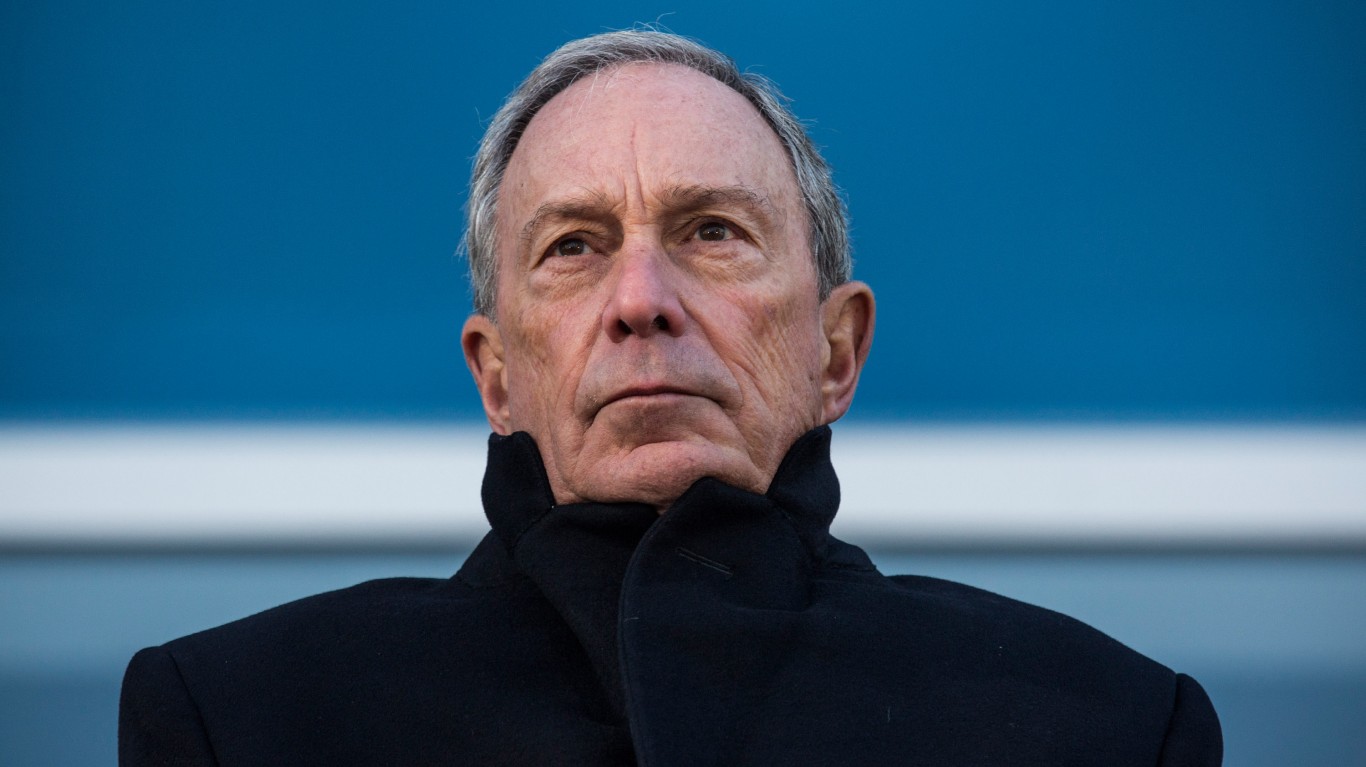Economy
Bloomberg Is First Choice of Only 2% of Democratic Primary Voters

Published:
Last Updated:

A research firm that polls for trends in the 2020 election recently found that 87% of primary voters have heard of Michael Bloomberg. However, he is only the first choice of 2%, a sign of the tremendous uphill battle he has in the fight for the nomination. The research covers over 16,000 Democratic primary voters and was done over the week from November 4 to November 10.
Research firm Morning Consult polls 5,000 registered voters a day. It researches presidential candidates and those running for both houses of Congress. Its polls are done on a national, state and congressional district level.
The most recent Morning Consult poll of Democratic primary voters shows Joe Biden in the lead at 32%. He is followed by Bernie Sanders at 20%, Elizabeth Warren at 19% and Paul Buttigieg at 8%. Most national polls show relatively similar numbers. However, several show Elizabeth Warren in a stronger position.
Bloomberg polls at less than 1% of voters in early primary states, which include Iowa, New Hampshire, South Caroline and Nevada. The results of these primaries often wash the weakest candidates out of the race. Bloomberg only has until early February to register a much higher number in Iowa. The caucuses there are on February 3, and New Hampshire has its primary on February 11.
The theory among Bloomberg supporters is that he can spend enough money and have enough determination to get to the later primaries and pick up enough votes to go to the Democratic Convention, which runs from July 13 to July 16 in Milwaukee, with enough delegates to challenge the current frontrunners. Bloomberg does have an estimated net worth of $52 billion, so he can outspend the other candidates, potentially outspending all of them together. He applied a similar method when he ran successfully to be the mayor of New York from 2002 to 2013. 24/7 Wall St. has researched which candidates spent most and least early in the primary season.
With a 2% “first choice” measurement, he likely will have to spend tens if not hundreds of millions of dollars to have a chance to get into the first tier of candidates.
The thought of burdening your family with a financial disaster is most Americans’ nightmare. However, recent studies show that over 100 million Americans still don’t have proper life insurance in the event they pass away.
Life insurance can bring peace of mind – ensuring your loved ones are safeguarded against unforeseen expenses and debts. With premiums often lower than expected and a variety of plans tailored to different life stages and health conditions, securing a policy is more accessible than ever.
A quick, no-obligation quote can provide valuable insight into what’s available and what might best suit your family’s needs. Life insurance is a simple step you can take today to help secure peace of mind for your loved ones tomorrow.
Click here to learn how to get a quote in just a few minutes.
Thank you for reading! Have some feedback for us?
Contact the 24/7 Wall St. editorial team.